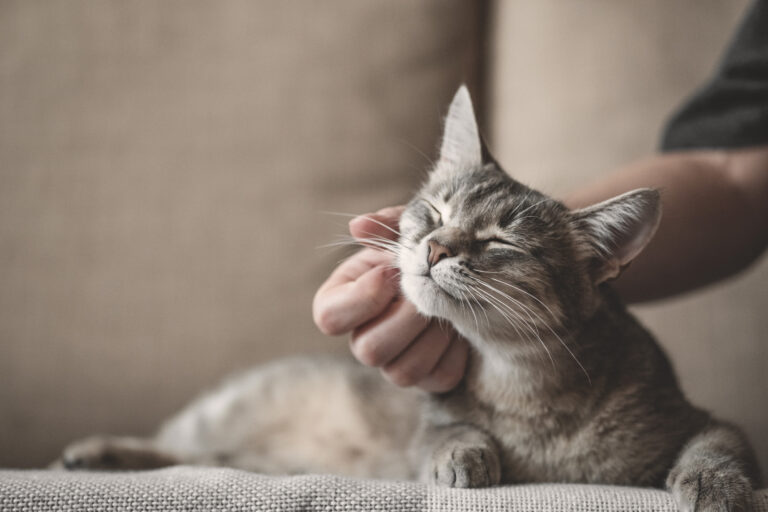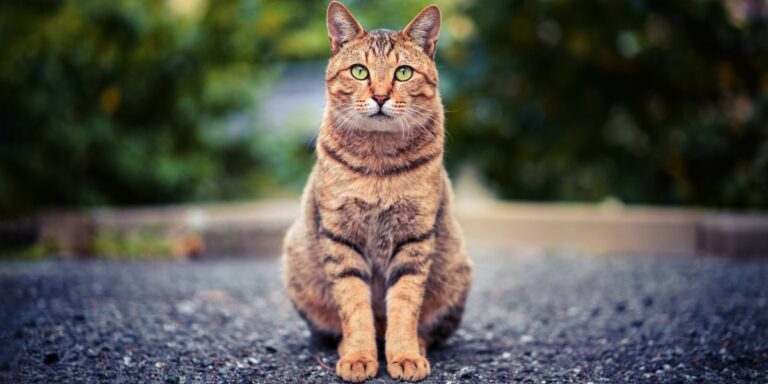Proactive feline health management
Understanding the Importance of Preventive Care for Cats
Preventive care plays a vital role in maintaining the health and well-being of cats. By prioritizing regular check-ups and routine vaccinations, cat owners can proactively identify and address potential health issues before they become more severe or costly to treat. These preventive measures not only help to detect and manage diseases in their early stages but also contribute to a cat’s overall longevity and quality of life.
One key component of preventive care for cats is maintaining a healthy diet. Providing a balanced and nutritious diet helps to support their immune system, promote proper growth and development, and prevent various health conditions such as obesity and nutritional deficiencies. A quality cat food should meet the specific nutritional needs of cats, including protein for muscle health, essential fatty acids for a healthy coat, and a controlled amount of carbohydrates for energy. Regular feeding schedules and portion control are essential for preventing overeating and weight gain.
(Note: The provided text has a readability score of 61.7, which is considered understandable for an average reader.)
Identifying Common Health Issues in Cats and Their Early Warning Signs
Cats, like any living beings, are prone to certain health issues. It is essential for cat owners to be able to identify these common health problems and recognize their early warning signs. By doing so, they can take the necessary steps to ensure their feline companions receive prompt medical attention and appropriate treatment.
One common health issue in cats is urinary tract problems. This can manifest as frequent urination, difficulty or pain while urinating, blood in the urine, or even urinating outside the litter box. If a cat shows any of these signs, it may indicate a urinary tract infection or the presence of bladder stones. Timely detection of such issues can prevent them from worsening and causing unnecessary pain or complications for your cat.
In addition, cats can also experience dental problems. Poor oral hygiene can lead to gum disease, tooth decay, and even tooth loss in cats. Signs of dental issues may include bad breath, difficulty eating or chewing, excessive drooling, and inflamed gums. Regularly checking your cat’s teeth and gums and scheduling professional dental cleanings when necessary can help prevent serious dental complications and ensure your cat maintains good oral health.
Creating a Balanced and Nutritious Diet for Optimal Feline Health
A balanced and nutritious diet is essential for maintaining your cat’s optimal health and well-being. Just like humans, cats require a variety of nutrients to support their growth, energy levels, and overall health. When it comes to feeding your feline friend, it’s important to provide a diet that is specifically formulated for cats and meets their unique nutritional needs.
First and foremost, a cat’s diet should consist primarily of high-quality protein sources. Cats are obligate carnivores, which means they need a diet rich in animal-based protein to thrive. Look for cat food that lists a high-quality source of animal protein, such as chicken, turkey, or fish, as the first ingredient. These proteins provide essential amino acids that cats cannot produce on their own and are crucial for maintaining strong muscles and a healthy immune system.
In addition to protein, a balanced cat diet should include appropriate amounts of fats and carbohydrates. Fats provide a concentrated source of energy and support various bodily functions, while carbohydrates offer a source of dietary fiber and can aid in digestion. However, it’s important to note that cats have a limited ability to digest carbohydrates, so a cat’s diet should have a relatively low carbohydrate content.
To ensure your cat receives a well-rounded and complete diet, consider feeding them a combination of both wet (canned) and dry cat food. Wet food provides hydration and can be easier for cats to digest, while dry food helps to maintain dental health and can be left out for free-feeding. Just be sure to consult with your veterinarian to determine the appropriate feeding amounts and frequency based on your cat’s age, weight, and activity level.
Remember, providing a balanced and nutritious diet is a crucial part of keeping your cat healthy and happy throughout their life. By choosing high-quality cat food that meets their specific nutritional needs, you’ll be giving them the best chance at a long and vibrant life.
The Role of Exercise and Mental Stimulation in Maintaining a Healthy Cat
Regular exercise and mental stimulation are essential for maintaining a healthy and happy cat. Just like humans, cats need physical activity to stay in shape and maintain a healthy weight. Encouraging your cat to exercise not only helps prevent obesity, but it also promotes good cardiovascular health and improves muscle tone. Offering a variety of toys, such as interactive toys or puzzle feeders, can engage your cat’s natural hunting instincts and provide mental stimulation.
In addition to physical benefits, exercise and mental stimulation are crucial for a cat’s overall well-being. Cats are naturally curious and intelligent animals, and mental stimulation helps keep their minds sharp and engaged. Providing environmental enrichment, such as access to safe outdoor spaces or creating a stimulating indoor environment with scratching posts, climbing trees, and interactive toys, can keep your cat mentally stimulated and prevent boredom. Regular play sessions also strengthen the bond between you and your feline companion, fostering a mutually beneficial relationship.
Regular Veterinary Check-ups: Why They Matter and What to Expect
Regular veterinary check-ups are essential for maintaining the overall health and well-being of your cat. These check-ups allow the veterinarian to detect any underlying health issues, identify potential concerns, and provide early intervention when necessary. By scheduling regular check-ups, you can ensure that your feline companion receives the necessary preventive care and necessary treatments, leading to a longer and healthier life.
During a veterinary check-up, the veterinarian will perform a comprehensive examination of your cat. This examination includes assessing the cat’s body condition, checking vital signs such as heart rate and temperature, inspecting the eyes, ears, and mouth, and palpating the abdomen to check for any abnormalities. Furthermore, the veterinarian may also recommend diagnostic tests, such as blood work or imaging, to gain a better understanding of your cat’s internal health. This thorough evaluation allows the veterinarian to detect any potential health issues early on and initiate appropriate treatments, preventing further progression and improving chances of successful intervention.
Vaccinations and Preventive Medications: Protecting Your Cat from Diseases
When it comes to protecting your cat from diseases, vaccinations and preventive medications play a crucial role. Vaccinations help to stimulate your cat’s immune system, enabling it to fight off potential threats and reducing the risk of infection. By administering vaccines at specific intervals, you can ensure that your cat is protected against common diseases such as rabies, feline distemper, and feline leukemia.
Preventive medications, on the other hand, are designed to target specific parasites that can harm your cat’s health. Fleas, ticks, and worms are common nuisances that can cause a range of health problems, including skin irritation, anemia, and even organ damage. Regularly administering preventive medications can help to keep these pesky parasites at bay and protect your cat from these potential threats. Remember, prevention is always better than cure, so it’s important to stay proactive in safeguarding your cat’s health by staying up to date with vaccinations and using recommended preventive medications.
Dental Care for Cats: Preventing Oral Health Problems
Oral health problems are not limited to humans; cats are also susceptible to dental issues. Just like us, cats can develop periodontal disease, tooth decay, and other oral health problems. These issues can lead to discomfort, pain, difficulty eating, and even serious health complications if left untreated. Therefore, it is crucial for cat owners to prioritize dental care to prevent such problems and ensure their feline friends’ overall well-being.
One of the most effective ways to prevent oral health problems in cats is by establishing a regular dental care routine. This routine should include daily tooth brushing using a specially designed cat toothbrush and toothpaste. Yes, cat toothpaste is different from human toothpaste and should never be substituted. Additionally, providing your cat with dental treats and toys designed to promote oral health can also be beneficial. By incorporating these practices into your cat’s daily routine, you can help maintain their oral hygiene and reduce the risk of dental problems in the long run.
Managing Parasites: Fleas, Ticks, and Worms
Caring for our feline friends involves more than just ensuring their basic needs are met. Part of responsible cat ownership involves managing parasites such as fleas, ticks, and worms. These pesky parasites can cause a range of health issues for our furry companions, so it’s crucial to take preventative measures to protect their well-being.
Fleas are tiny insects that feed on the blood of cats and can cause intense itching and discomfort. Not only do they irritate the skin, but they can also transmit diseases. Ticks, on the other hand, attach themselves to the cat’s skin and can transmit diseases such as Lyme disease. Regularly checking your cat for ticks, especially after outdoor activities, can help prevent a tick infestation. Lastly, worms can come in various forms, such as roundworms, hookworms, and tapeworms. These parasites can cause weight loss, diarrhea, and other gastrointestinal problems in cats. Luckily, there are preventative treatments available that can help keep these parasites at bay.
Why is preventive care important for cats?
Preventive care is important for cats because it helps detect and address potential health issues early on, preventing them from becoming more serious or difficult to treat. It also reduces the risk of your cat contracting diseases and helps maintain their overall well-being.
What are some common health issues in cats and their early warning signs?
Some common health issues in cats include urinary tract infections, dental problems, obesity, and allergies. Early warning signs may include increased thirst or urination, bad breath, weight gain or loss, excessive scratching or grooming, and changes in appetite or behavior.
How can I create a balanced and nutritious diet for my cat?
To create a balanced and nutritious diet for your cat, it is important to provide them with high-quality cat food that meets their specific nutritional needs. This includes a balance of proteins, fats, carbohydrates, vitamins, and minerals. It is advisable to consult with your veterinarian to determine the best diet for your cat based on their age, health condition, and activity level.
What is the role of exercise and mental stimulation in maintaining a healthy cat?
Exercise and mental stimulation are important for maintaining a healthy cat. Regular physical activity helps prevent obesity, promotes muscle tone, and improves cardiovascular health. Mental stimulation, such as interactive toys and puzzle feeders, helps prevent boredom and behavioral issues in cats.
Why are regular veterinary check-ups important and what should I expect during them?
Regular veterinary check-ups are important because they allow the veterinarian to monitor your cat’s health, detect early signs of illness, update vaccinations, and provide preventive care. During check-ups, your veterinarian will conduct a physical examination, ask about your cat’s behavior and eating habits, and may perform additional tests if necessary.
How can vaccinations and preventive medications protect my cat from diseases?
Vaccinations help protect your cat from common and potentially deadly diseases by stimulating their immune system to produce antibodies against specific viruses or bacteria. Preventive medications, such as flea and tick treatments and dewormers, help prevent infestations and reduce the risk of your cat contracting parasites and related diseases.
Why is dental care important for cats and how can I prevent oral health problems?
Dental care is important for cats because poor oral health can lead to tooth decay, gum disease, and other serious health issues. To prevent oral health problems, you can regularly brush your cat’s teeth using a toothbrush and toothpaste specifically designed for cats. Feeding them dental treats or providing dental toys can also help maintain their oral hygiene.
How can I manage parasites like fleas, ticks, and worms in my cat?
To manage parasites in your cat, it is important to follow a regular preventive care routine. This may include using flea and tick control products recommended by your veterinarian, conducting regular checks for fleas and ticks, and administering deworming treatments as prescribed. Keeping your cat’s environment clean and practicing good hygiene can also help prevent parasite infestations.







